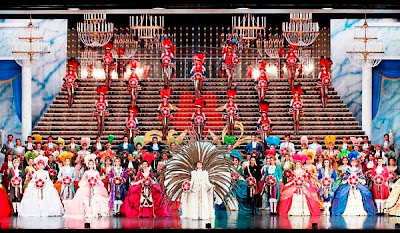Life After Teaching Overseas: Part 2
 |
When I began this series of posts with Part 1, I knew that the COVID-19 outbreak would soon make its way to the rest of the world beyond Asia, but I honestly didn't expect the sheer scale of the pandemic and how much it would impact daily life after returning home to the US. In retrospect, it seems clear that we were headed in this direction, but the situation has escalated far more rapidly than I anticipated. It's hard to write about my experiences settling into life in the US after 10 years overseas and expect any of it to be relatable to others reading this in the future, given that there is nothing normal about life at home these days.
I've been doing what I can to settle into life in the US despite these strange times. The first priority of course is preparing to find a new job here, so I've spent a lot of time working on my resume, updating social media profiles, and reading about potential career paths for my new life in the US. For those returning from overseas, a great option for making the transition go a little smoother is online teaching. I haven't applied for any positions yet, but there are a lot of options out there and once I've gotten some experience with it under my belt I will write a post about how it has worked out for me. Side hustles are another good option, such as opening an online store with Etsy or Shopify, creating online content via Youtube or blogging, or marketing your skills on platforms like Fiverr. These side gigs can help keep some income flowing in while you look for a new job at home.
Honestly, there's not much beyond that which I can offer in terms of practical advice for settling in at home again after years overseas, because the truth is that the world is in the midst of a crisis unlike anything I've ever experienced before. The one thing that even comes close to this was living in Sendai at the time of the 2011 earthquake and tsunami in Japan. What I learned from that was the power of caring for your community first and foremost.
In the days after the earthquake struck, friends, neighbors, parents of students, and colleagues all did what they could to check in on me and offer their support through food, supplies, or even just companionship. I did what I could to return that. Even in a time of tragedy, people were there for each other. I really appreciated how Japanese collectivism translated itself into community care taking throughout the days, weeks, and months after the emergency.
 |
| Newspaper headlines and our first glimpse of the tsunami's destruction of the coastline near Sendai |
 |
| For a few days, I lived in my school with the owner. Some of these supplies were provided by friends and neighbors |
 |
| Waiting in line at the supermarket to receive rationed food |
 |
| This was what I received from one store as a day's rations: instant noodles, snacks, and candles |
If you want to read my blog posts from 2011 about the earthquake and tsunami in Sendai, you can do so here: Part 1 and Part 2.
I hope that we in individualistic cultures can learn to do the same. I believe we can, and in many ways, I am already seeing this in offers made by friends on social media to chat with the lonely or provide supplies to the ill. If you want to do something positive to help your community, now is a great time to give to charities like the food bank. According to the American food bank FeedingAmerica.org, $1 can provide as much as 10 meals. Yes, times are getting hard economically, but if you can even spare $10 it will make a big difference. Another way to help is donating blood to the Red Cross if you're eligible to do so, as many hospitals are experiencing shortages now because of the cancellation of blood drives. Finally, one more suggestion is to donate any needed medical supplies to local hospitals, especially items like medical masks or hand sanitizer.
But perhaps the single most important thing you can do right now to protect yourself and others is stay home if it is possible for you to do so.
Another important lesson I learned from the 2011 earthquake in Japan was the importance of thinking critically about what you read or hear. There is often a lot of misinformation being spread by rumors on social media or less than credible news sources. Think carefully about what you read and if it doesn't feel right, do a little googling to check the reliability of the information. Don't rely on a single source. Above all, we need to listen to experts and well-qualified sources during this time. I've found the podcast Epidemic to be very helpful so far. It's hosted by epidemiologist Dr. Celine Grounder and Ronald Klain, the US Ebola response coordinator in 2014-15. National and state CDC pages are also useful for up to date information and safety guidelines.
I hope everyone out there stays safe and does what they can to protect themselves and everyone in their community. The only way we can get through this difficult time without major losses to our communities is by working together for the greater good.
 |
| A much needed hanami picnic with friends over a month after the earthquake in Sendai |
 |
| However hard things get, there will be brighter days ahead |


Comments
Post a Comment